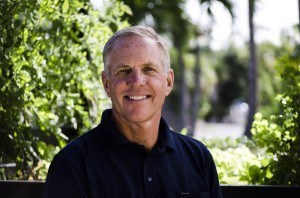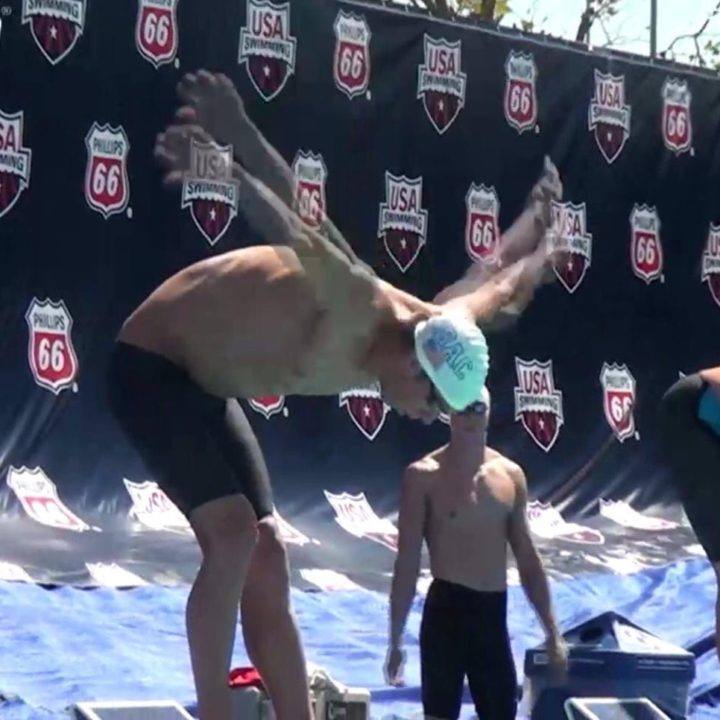
Courtesy of Gary Hall Sr., 10-time World Record Holder, 3-time Olympian, 1976 Olympic Games US Flagbearer and The Race Club co-founder.
At The Race Club camps, our fifth and final point of peak performance mental toughness training is called anchoring. Anchoring is sports psychology that the swimmer does or says or thinks either standing behind or on the starting block, just seconds before the start of an important race.
The Anchoring effect to the swimmer is what the switch is to the light bulb. It is what the curtain-rise and spotlight is to the actor. Without anchoring techniques, the swimmer’s brain simply doesn’t get quite the same message that it is showtime. Anchoring psychology is the final and critical piece in the process of peak performance mental training. Without the positive thinking anchor, the peak performance is likely not going to be as good.
 Every elite swimmer has a peak performance anchor. Some anchoring techniques are obvious. Some anchoring methods are not so obvious. I can assure you that each elite swimmer is saying or doing something right before that big race begins to get into the zone required of great performances. Anchoring is essential.
Every elite swimmer has a peak performance anchor. Some anchoring techniques are obvious. Some anchoring methods are not so obvious. I can assure you that each elite swimmer is saying or doing something right before that big race begins to get into the zone required of great performances. Anchoring is essential.
The fun part about anchoring is that each swimmer gets to design or invent his or her own peak performance anchor. It doesn’t matter too much if other swimmers in a race know what your anchor is, or even that you are anchoring. It is only important that you know.
An anchor can be as simple and subtle as licking the inside of your goggles or saying a few key words to yourself. Or the anchor technique can be as flamboyant as kissing your biceps (be ready to back it up!). You get to create your own. Just be sure you do that and don’t forget to use it before the big race.
Here are some of the most memorable anchors of all time.
- Michael Phelps’ dynamic stretch arm swing on the block. You might have thought that this famous stretch was just a stretch. Not only did it tell Michael that he was ready to pounce on the competition, the loud slap on his shoulders of his hands also anchored to every one of his competitors that Michael was ready.
- Usain Bolt’s ‘To di World’ Lightning victory pose. From the origin of a Jamaican dance, this pose became the fear of anyone that considered challenging Bolt’s title of the fastest human being on the planet.
- Gary Hall Jr’s shadow boxing routine. Through his career, the boxing progressed to the raising of his clenched hands to both sides, then finally to kissing of his biceps, accompanied by the red, white and blue, Stars and Stripes boxing robe and shorts. Boisterous? Perhaps, but he always backed it up.
- Amanda Beard’s teddy bear. Since the time she was a young swimmer, the teddy bear accompanied her to the starting block and waited there until she finished. Important? She probably couldn’t swim fast without that bear, but she did manage to win a few Olympic gold medals with the teddy bear on the block, cheering her on.
- Michael Jordan’s bounces of the basketball at the foul line, followed by a single backward twirl of the ball in the air. He once hit 6 out 10 free throws with his eyes closed using that anchor
- Stephan Curry‘s biting of his mouthpiece sideways before every free throw to be over 90% successful.
What is your peak performance anchor going to be?
Yours in swimming,
Gary Sr.

Gary Hall, Sr., Technical Director and Head Coach of The Race Club (courtesy of TRC)
Like The Race Club on Facebook
Follow The Race Club on Instagram
Follow The Race Club on Twitter
Connect to The Race Club / Gary Hall Sr. on Linkedin
THE RACE CLUB
Because Life is Worth Swimming, our mission is to promote swimming through sport, lifelong enjoyment, and good health benefits. Our objective is for each member of and each participant in The Race Club to improve his or her swimming performances, health, and self-esteem through our educational programs, services and creativity. We strive to help each member of The Race Club overcome challenges and reach his or her individual life goals.
The Race Club provides facilities, coaching, training, technical instruction, video, fitness and health programs for swimmers of all ages and abilities. Race Club swim camps are designed and tailored to satisfy each swimmer’s needs, whether one is trying to reach the Olympic Games or simply improve one’s fitness. Our programs are suitable for beginner swimmers, pleasure swimmers, fitness swimmers, USA swimming or YMCA swimmers, or triathletes; anyone who wants to improve swimming skills. All of our Race Club members share an enjoyment of being in the water and use swimming to stimulate a more active mind and body.

I stopped using mine after le Clos began doing it in 2016. It didn’t work for him, either.
What was your anchor Gary?
My anchor was simple, not flamboyant, but it seemed to work. I bowed my head down and closed my eyes before the starting block and whispered these words three times: ‘you can do it. you can do it. you can do it’. Just glad I didn’t have to contend with today’s swimmers.
Love it, Gary. You cut to the essence of a complex psychological process. And I think you’re right. Bottom line is: Anchoring is like the On switch to signal the brain: It’s showtime!
Thanks Markus! You were one of the best…and I’m sure had an anchor you used.
Oh Coach Gary – You are a Masterful one!